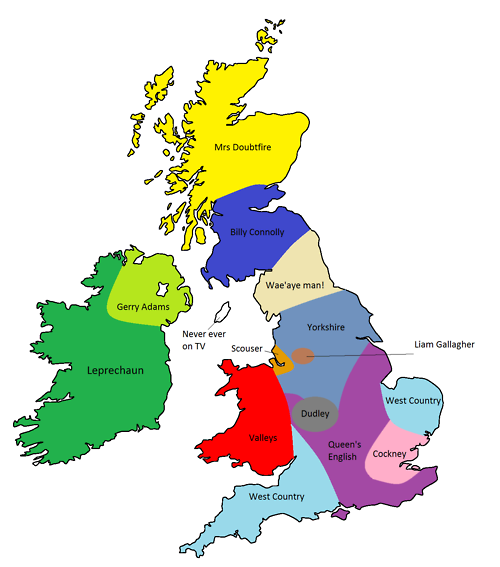 |
| Betray you origins to avoid stereotype discrimination? |
More than a quarter of British people feel discriminated against because of the way they speak.
Accents are either something you are proud of or a feature you try to disguise. When discussing accents with another people may often try to make their accent stronger to prove a point. Others however may begin to try and talk in received pronunciation. This can depend on the stigma your accent of origin carries with it.
Stronger accents can often be linked to a stronger sense of pride in your place of origin. However these accents are the ones that the majority of the time are discriminated against. The Brummie accent is one of the more distinctive accents in the UK, yet in a recent survey brummie was found to be the least intelligent sounding accent.
In this post-modern society we live in, you would think that discrimination of accents would be a minor issue but according to new research 80% of employers have admitted to making discriminating decisions based on peoples accents. But experts say that the discrimination does not come from the way people sound, but because of the regional area of their accent. However in a recent study results showed RP sounding most intelligent when put next to Brummie and Scouse, making you wonder if it is the place of region or the sound of the accent itself.